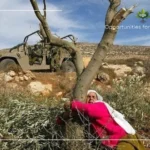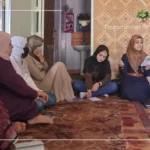When Gema Soto left her home in the Venezuelan state of Bolívar, she carried more than just a few belongings — she carried the weight of a life that had once seemed certain. Her eldest daughter had just graduated as a journalist in Caracas, her second was studying law, and her youngest was still in school. Together with her husband, an artisan, and her own work in tourism, they were a family with dreams, routines, and roots.
But as Venezuela’s political, economic, and social situation worsened, survival became a daily challenge. “A month’s salary could only buy a carton of eggs,” Gema remembers. “That’s when we realized we couldn’t stay.”
They began crossing into Brazil to sell crafts at artisan fairs, until one day they were told they could no longer enter as tourists. Declaring refugee status was their only choice. “It was painful,” she says, “like admitting that everything we had worked for was gone.”
A Second Chance in São Paulo
After months of separation, Gema and her husband managed to bring their three children to Brazil, one by one. When her son received a job offer in São Paulo, the family followed — not knowing what awaited them.
“São Paulo felt like another country,” she says. “Even the way people spoke and moved was different.” Handicrafts no longer sustained them, and Gema’s first job was in cleaning. But when her employer told her that she wouldn’t be paid for the first two months, survival became desperation.
During that time, her husband and son ate at Bom Prato, a community cafeteria that offers a full meal for one real (0.20 USD). They would sneak pieces of fruit and bread in their pockets — Gema’s only food for two months.
The Coffee That Changed Everything
One day, exhausted and hungry, she sat down in the middle of a sidewalk and began to cry. “I had done everything society told me to do — study, work, raise a family, be a good person — and yet, there I was, with nothing.”
A man living on the streets approached and offered her a cup of coffee. Sitting beside her, he told her stories about São Paulo — how carts once passed where they sat, how the city had grown. Then he said, quietly, “Do you know why I live on the streets? Because I couldn’t bear the pain of losing my son.”
At that moment, Gema felt shame — and gratitude. “I had my children with me. I realized I had a second chance, something he would never have again.”
That encounter changed her life. “I decided I would do something that could comfort people, something that could embrace them — like that coffee he gave me.”
Learning, Healing, and Finding Purpose
Gema began to study. She took every free course she could find — in Portuguese, entrepreneurship, and gastronomy. Eventually, she joined the NGO Aventura de Construir, where a year-and-a-half training program in gastronomy became, as she describes, “a healing process for the soul.”
“There, we first learned to take care of ourselves — to understand who we were as migrants, and how to rebuild our lives. I chose entrepreneurship because a salary wasn’t enough — not when I still had family in Venezuela who depended on me.”
She also trained through the Gastronomia Periférica project, founded by Chef Edson Leiteand psychologist Adélia Rodrigues, which empowers Black women from the outskirts of São Paulo through professional cooking. “Historically, Black women have always been in kitchens — but never for themselves,” Gema reflects.
Cooking with Purpose
Through these experiences, Gema discovered a deeper philosophy of food. “I wanted to know where ingredients came from — who planted them, who harvested them. I learned about family farming, about sustainability, and about the difference between food grown with care and food made with chemicals.”
She decided her work would center on care. “I wanted to cook for people with allergies or intolerances — for those who often can’t eat what they love. I wanted to use whole ingredients — the peel, the roots, the seeds — and make my business sustainable for everyone: the farmers, the customers, and the planet. A circle of love, a circle of sustainability.”
Chevere Restaurante & Servido 12
That vision became Chevere Restaurante, later expanding into Servido 12. At first, she ran a small restaurant with five daily dishes, but soon adapted the menu to two — one vegetarian, one with animal protein.
Then, one day, a client told her she had never celebrated her birthday because she couldn’t eat cake due to gluten and lactose intolerance. “That broke my heart,” Gema recalls. “So I made her a cake — a sweet potato cake with almond slices, no flour, no dairy. She was so happy — and that’s how our first cake was born.”
From there, Servido 12 grew. Today, Gema offers 11 original gluten-free, lactose-free cake recipes, and her business caters events, corporate meetings, and gastronomic fairs.
“People tell me they love that they can finally enjoy dessert without feeling sick,” she says. “Usually, they’d take a pill just to eat something they love. But now, they don’t have to.”
A Circle of Nourishment
For Gema Soto, food is more than sustenance — it’s healing, dignity, and connection. From a cup of coffee shared by a stranger on the streets to cakes that let others celebrate life again, her journey embodies resilience and love in every bite.
You can follow her work on Instagram: @chevere_restaurante








